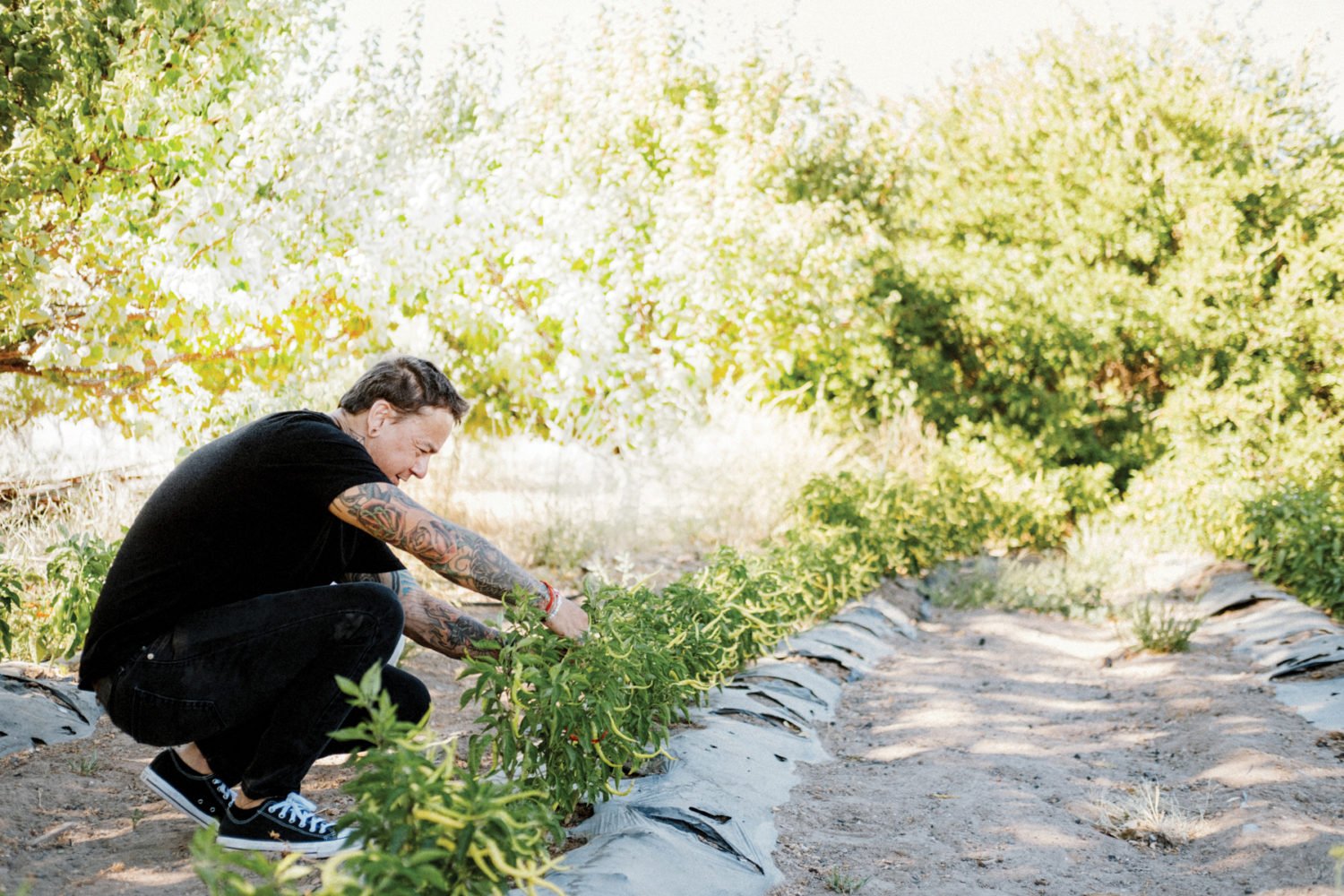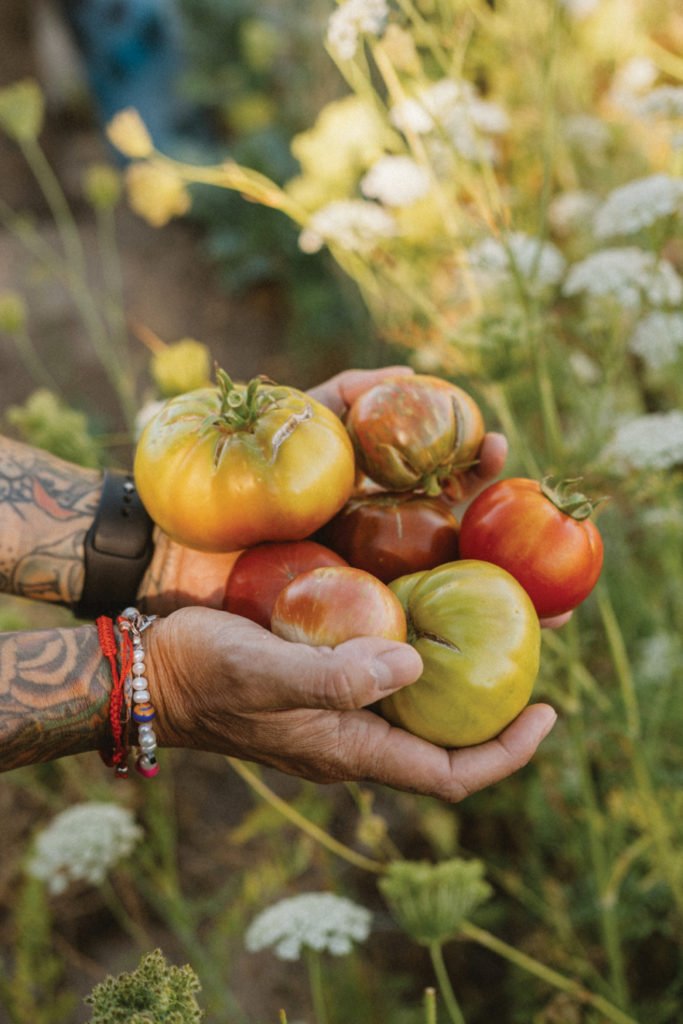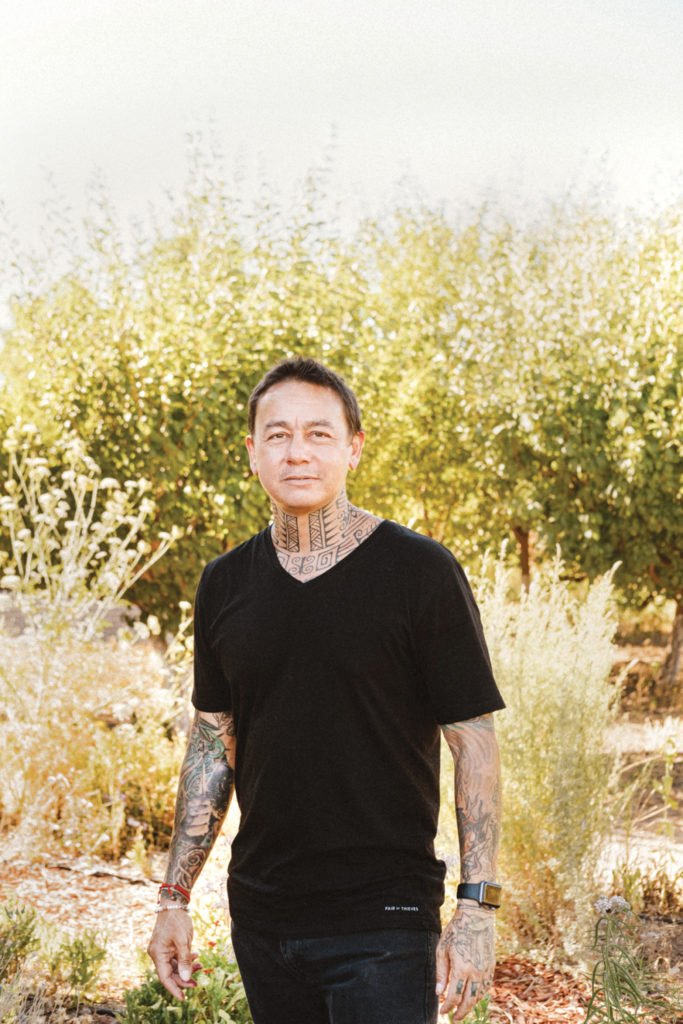
Global Perspective
Written by Libry Darusman
Photography by Richard Fusillo
In this Perspective piece, Chef Libry Darusman reflects on his upbringing in Indonesia and Germany, his introduction to cooking and his experience of preparing food for Hollywood events, and even an American president.
Long before I would stumble into the art of cooking, I was born in Indonesia to a German mother. When I was still an infant, my mother took me and my older brother to Germany, where we lived with my grandparents. There, my mom met and married the man I call my father. He was in the Army, so we moved all around Germany depending on where he was stationed. We lived in German towns and had German friends, but were shuttled about an hour onto the army base for school. The summer after eighth grade, we moved to the States.
When I got kicked out of school before I could graduate, due to poor attendance, I had to attend an offsite program for my GED. A cooking class would give me double the credits toward my electives, so I took it to finish school faster. Once I got into the program and started working with food, I realized the techniques I was learning came very naturally to me. Other students in class would break sauces made of stock in butter, where you had to emulsify cold butter into pans to make a cohesive sauce. I never broke that sauce. After this class, I was offered a second cooking class that would expedite my schooling, so I signed up. Everything the teacher said registered and resonated in my brain like a language I could understand.

After school, it only made sense for me to get a job in a restaurant and I started out making salads at a steakhouse. I quickly moved up to making appetizers, then over to the grill. Later, I moved on to a place in Los Angeles called Roomforty, a fine dining catering company. That’s where I put all my experiences together to create beautifully curated food for events. We focused on seasonal ingredients and used liquid nitrogen and cream charger guns, along with more down to earth skills like making our own fresh pasta and bread.
Like my childhood, my culinary background is kind of all over the place, but that’s intentional. I wanted to learn as much as I could about all the different cuisines and types of cooking so I moved around and traveled like a nomad from kitchen to kitchen. All I wanted was to soak up knowledge and work from talented chefs to better myself. I eventually moved to Las Vegas to help open Frank Sinatra’s restaurant inside the Encore. Later, I catered the Emmys, the Golden Globes and even cooked an entire vegan multicourse menu for President Bill Clinton, who was eating plant based at the time.
If we’re being totally honest, the Central Coast was never really a destination I had in mind. I had been working in and around L.A. for almost two decades and I was burnt out. I needed a shift in my mentality and I wanted to get back to smaller format restaurants that were more farm to table than what I was doing on a fine dining, mass catering scale. I found that first at Thomas Hill Organics in Paso Robles. Cooking here is very different than [in] the kitchens I was used to in L.A., where you have purveyors dropping dollies or pallets of produce and protein at your back door 30 minutes before you even get there. It’s very impersonal and you almost never see your sales rep or the farmers. Here, I get to work with local farms and they bring milk crates of just-picked veggies through the back door and text me on my day off to tell me what they do and don’t have and “can we substitute this for this.” I love that! When it’s tomato season, the farmer tells me, “Hey, at the rate you’re ordering and the amount you’re ordering you have about two weeks of tomatoes left.” So I start thinking about what vegetable comes in season after tomatoes and I start building the menu for that vegetable. Tomato salad and gazpacho come off the menu and the next vegetable forward dish goes on. There’s a beautiful relationship here between chef and farms you don’t find many other places.

Because I was born in Indonesia and raised in Germany by an American father, my cooking style doesn’t necessarily reflect my culture. It’s more so a combination of things I like to eat and chefs I’ve worked under. Some of them only used in its pure form the freshest, seasonal produce and the most exquisite proteins available. I’ve also worked for Italian chefs passionate about pasta and bread making. In Germany, I grew up on fermented foods like sauerkraut and braised red cabbage. When I lived in L.A., a lot of my friends were Korean, so I got into making kimchi. Fermentation is something I’m very passionate about. It’s a beautiful art form that has to be perfectly executed under the right conditions but registers in your soul.
As a chef, it’s a very vulnerable feeling to put yourself and your food out there for people to judge. When I go to work and one of the dishes isn’t selling well, I start to second guess myself, but I think that’s only natural. I want to make it better but I also know you can’t please everyone and I don’t think you aim to please everyone. I think you do what you love and you do what you’re good at because you hope people will enjoy it. I guess the biggest challenge is myself. I think of cooking as an art form and a craft. And what I’m most proud of is that I create food from scratch as much as possible — whether that’s making my own pasta or bread or even the ketchup for the fries, American cheese for the burger, fermenting and pickling, just all those beautiful things that cooking has always been and sometimes gets lost to the ages. I just love to bring cooking back to the basics, back to its roots.

